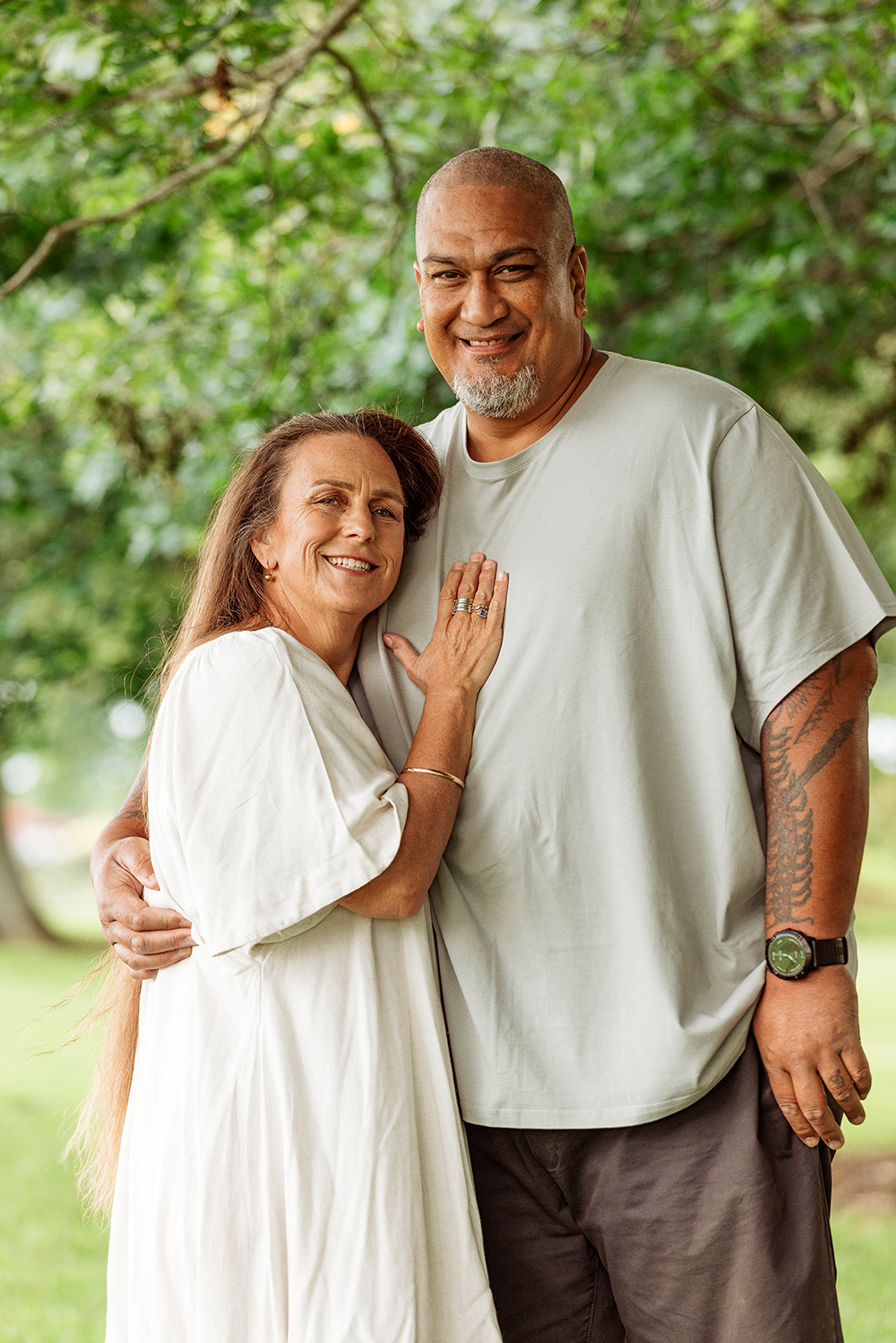As a teenager, Tineke Maoate’s daughter Teagan begged her mum for a hysterectomy. Coping with a genetic blood disorder, she desperately wanted to live without the excessive bleeding during her period and was willing to never have a child of her own to be freed from the ordeal.
Tineke, 47, knew only too well what she was going through, as she also suffers from multiple bleeding conditions which cause extreme blood loss each month, prolonged bleeding if injured and also caused concern when she gave birth to her six children.
“I did take Teagan to see a specialist, but he said he ethically couldn’t do it when she was so young,” recalls the King Country woman, who chose to have a hysterectomy herself at 35 after her youngest child was born. “I wanted it earlier, but I didn’t meet the criteria, even though I had von Willebrand disease and another platelet condition.”
In hindsight, both Tineke and Teagan, now 27, are pleased the procedure wasn’t done, with the arrival of Teagan’s son Sylas five months ago.

Tineke and her husband with their family (from left) Tarquin, Eshkar, Teagan, baby Sylas, Theodore, Evekanya, R-Leeeo and pooch Princess.
Yet Tineke is sure much of the trauma and angst all of her children, who were diagnosed as babies, go through could be avoided if there was greater awareness of their condition.
For the females in the family, it can mean periods so heavy they need to replace sanitary products hourly, while her sons have faced bullying by fellow pupils, who know they won’t respond as they cannot risk being injured.
“The bleeding controls you – the women in our family have to think ahead. Where’s the toilet going to be? And you bleed for weeks, affecting things like intimacy. That takes a very understanding partner.”
Her husband of 24 years also has a blood disorder, resulting in a unique mutation for their children, twins R-Leeo and Theodore, 23, Tarquin, 20, Evekanya, 13, and Eshkar, 12.
“It hasn’t controlled me, but it’s had a different effect on my children,” shares Tineke. “They have disabilities and we cannot take the risk of contact sport. I home school the younger ones too, so they aren’t bullied about it.”
Her twin sons were born at 27 weeks and also have asthma and lung conditions. Theo is autistic and deaf, and Tarquin has ADHD.

Tineke says she’s glad she has a patient and understanding husband.
“ADHD with a bleeding disorder is not good,” says Tineke. “He wants to climb and jump off things. He got really badly bullied but would never fight back because he worried they’d hit him in the head, and a head injury for a person with a bleeding disorder is really serious. That can cause a bleed on the brain way worse than a normal person.”
Home schooling, raising her family and keeping them safe is a demanding and constant job, but the busy mum takes it all her in stride. The family also regularly takes in foster children, and Tineke is a volunteer firefighter for her rural community and has run local food banks.

Tineke makes it a priority to give back to her community.
Giving back is important to Tineke, who is on the Haemophilia Foundation of New Zealand board, is a senior mentor on camps and helps support others with blood disorders.
“HNZ is my biggest passion because it affects my family so much,” tells Tineke. “And we are able to provide a Pacific voice as well. We are trying to get Pasifika people to talk about it and get support because sometimes they get diagnosed, but they hide it. You can live really good lives as long as it’s managed, and you are well looked after and supported.”
Tineke hopes her efforts will especially improve care for young women. “I wish doctors would listen when a young girl says she has heavy bleeding. A lot of our women do not find a bleeding disorder until they give birth, so there’s a trauma. It can rule your life trying to work out where the toilets are and worrying, will you bleed through your clothes? That’s hard for a teenager.”
The determined mother, who will never stop advocating for her children and others, says it’s normal to feel overwhelmed by these serious conditions. “It’s okay to let them have a pity party and say ‘poor me’. It’s hard, but you cannot let it rule or ruin your life.”



